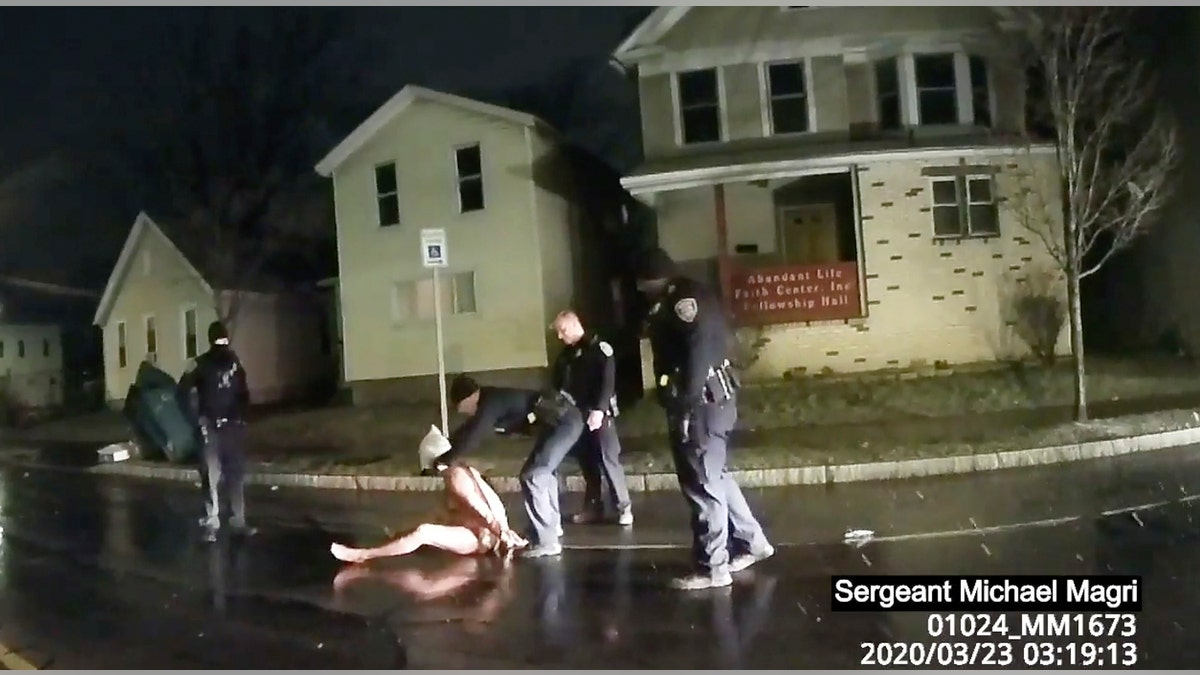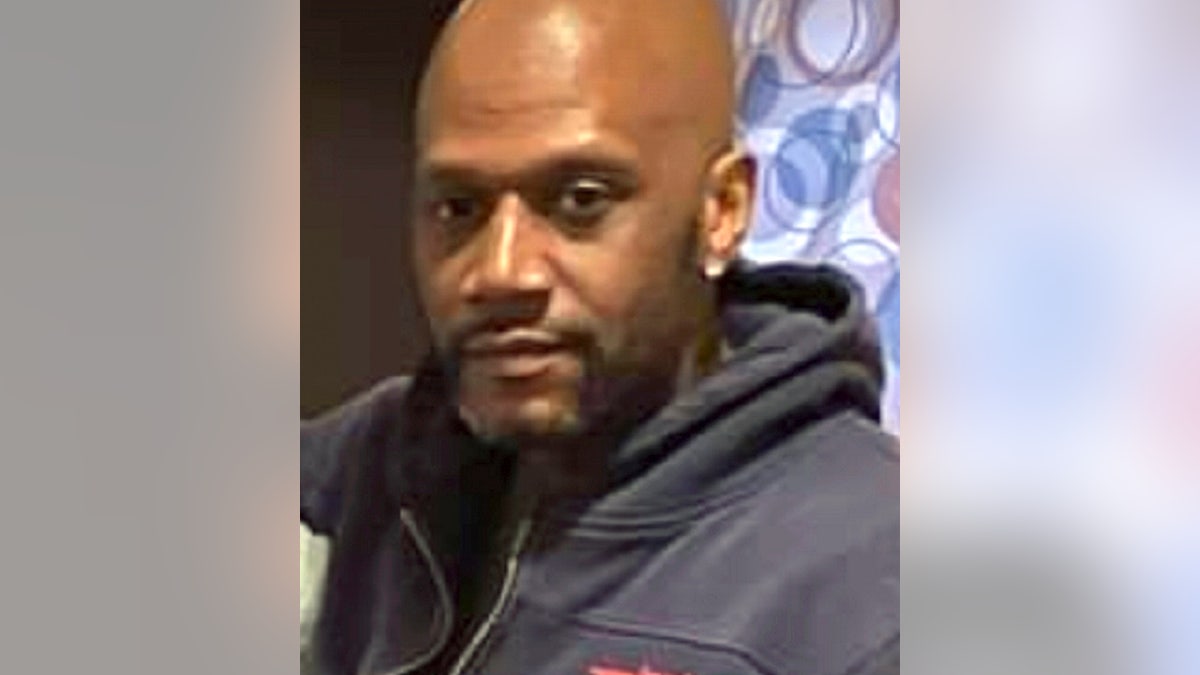Protests continue in Rochester, New York after police chief, command staff step down
Rochester, New York Police Chief La'Ron Singletary and senior members of his command staff announce their retirements from the force amid criticism from city leaders of the handling of the police-involved death of Daniel Prude; Aishah Hasnie reports.
The death of Daniel Prude has shed new light on New York State’s mental health laws and how law enforcement officers respond to calls involving people high on the illegal hallucinogenic drug PCP.
Prude, a 41-year-old Black man, died after police in Rochester, N.Y., found him running naked in a street around 3 a.m. on March 23, put a hood over his head to stop him from spitting, then held him down for about two minutes until he stopped breathing. He died a week later after he was taken off life support.
In Monroe County, where Rochester is located, there have been nearly 7,000 mental hygiene transports so far this year, WHAM reported. The encounter between Prude and officers happened at the height of the coronavirus pandemic in the U.S., and Prude allegedly told a witness he had contracted COVID-19.
ROCHESTER PROTESTERS PAINT 'MURDERERS,' 'RESIGN' ON STREET DURING DANIEL PRUDE DEMONSTRATIONS

In this image taken from police body camera video provided by Roth and Roth LLP on Sept. 2, 2020, a Rochester police officer puts a hood over the head of Daniel Prude, on March 23, 2020, in Rochester, N.Y. (Rochester Police via Roth and Roth LLP via AP)
His brother, Joe Prude, had called 911 seeking help for Daniel Prude's unusual behavior twice within an 11-hour time frame. He had been taken to Strong Memorial Hospital for a mental health evaluation the night before but was released after a few hours, his brother told officers. According to police body camera footage, Joe Prude also told officers his brother was high on PCP, or phencyclidine, which is a DEA Schedule II controlled dangerous hallucinogenic drug.
"He tried to hurt himself because he jumped 21 stairs in my basement -- head first," Joe Prude purportedly told Rochester police the first time they responded to his address around 4 p.m., according to WHAM. "He was trying to harm himself."
An autopsy report from the Monroe County Medical Examiner’s Office ruled that Daniel Prude died by “complications of asphyxia in the setting of physical restraint” and classified the manner of death a homicide. The report also stated Daniel Prude had a clinical history of “agitation and combative behavior” and “suicidal ideations and possible auditory hallucinations and paranoia.” Toxicology studies showed he was under “acute phencyclidine intoxication” at the time, according to a copy of the report obtained by WROC.
It remains unclear why Prude was released from the hospital after his brother's first 911 call instead of being involuntarily committed.
ROCHESTER POLICE CHIEF, DEPUTY RETIRING AFTER DANIEL PRUDE DEATH

In this undated file photo provided by Roth and Roth LLP, shows Daniel Prude. Prude, 41, who suffocated after police in Rochester, N.Y., put a "spit hood" over his head while being taken into custody. (Courtesy Roth and Roth LLP via AP, File)
Strong Memorial Hospital is a subsidiary of the University of Rochester Medical Center, which issued a statement saying it reviewed the care provided to Daniel Prude in the hours before the police restraint that allegedly led to his death and said it was "medically appropriate and compassionate.” Medical privacy laws prevent the hospital from releasing additional information about Prude without permission from family members.
Under state law, a psychiatric emergency constitutes an instance where there’s “reasonable cause to believe that the person has a mental illness for which immediate observation, care and treatment in a hospital is appropriate and which is likely to result in serious harm to him/ herself or others.”
In order to classify as a psychiatric emergency, a peace or a police officer must transport the person to the hospital. The patient may be involuntarily held at the hospital for up to 72 hours, or even up to 15 days depending on an evaluation by a psychiatrist. However, a person who recovers from an instance of substance abuse can refuse treatment at any time, WHAM reported.
"Those people cannot be held against their will once they are back to their baseline and are no longer exhibiting behaviors that were in question," Dr. Mary Marrocco, medical director of Behavioral Health and Emergency and Consult Services at Rochester Regional Health, told the station. She is not directly linked to Prude’s case but spoke generally about New York’s Mental Hygiene Law.
"The state law is very clear. We don't want to be taking people's freedom away from them if there isn't a compelling reason to do so," Marrocco said.
CLICK HERE TO GET THE FOX NEWS APP
Prude's death sparked outrage after his relatives on Sept. 2 released police body camera video and written reports they obtained through a public records request. Seven police officers were suspended Thursday, and state Attorney General Letitia James said Saturday she would form a grand jury and conduct an "exhaustive investigation” into Prude's death.
Rochester Police Chief La’Ron Singletary, Deputy Chief Joseph M. Morabito, and two commanders retired Tuesday, while two more deputy chiefs and a commander gave up top leadership positions and returned to lower ranks. The outgoing chief accused critics of trying to “destroy my character and integrity.”
The University of Rochester Medical Center, and the Monroe County Mental Health Department, located within the Rochester Police Department, did not return Fox News requests for comment.
The Associated Press contributed to this report.









































